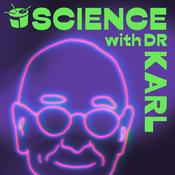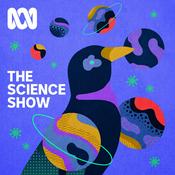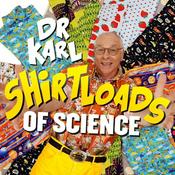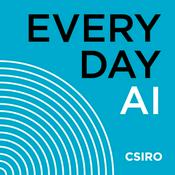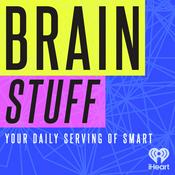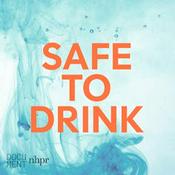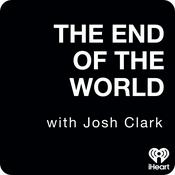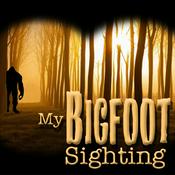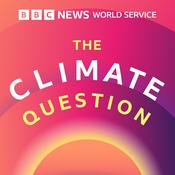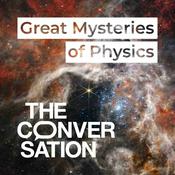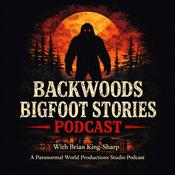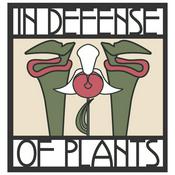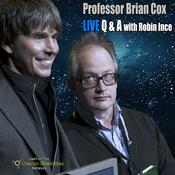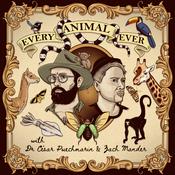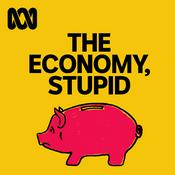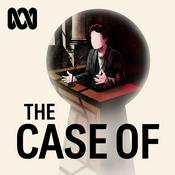269 episodes
- NASA is gearing up for the Artemis II mission — where it will send astronauts around the moon for the first time in 50 years. While space exploration is never without risk, a retired astronaut is warning that NASA is "playing Russian roulette" with the lives of the crew.
So have lessons been learnt from the Challenger and Columbia disasters?
To hear more podcast episodes from hosts Fiona Pepper and Dr Karl Kruszelnicki about the legacy the 1986 Challenger space shuttle disaster left on culture, space exploration and high-risk decision making, search ‘Science Friction: The Challenger Legacy podcast’ from Radio National (RN) on the ABC Listen App (Australia), or wherever you get your podcasts.
Get in touch with us: [email protected].
Guests:
Peter KingCorrespondent for CBS News Radio
Wendy Whitman CobbSpace policy expert at the School of Advanced Air and Space Studies
Charlie CamardaRetired NASA research engineer and astronaut
Howard BerkesFormer investigative reporter, NPR
Leslie EbelingDaughter, Bob Ebeling
Brian RussellFormer engineer, Morton Thiokol
Credits:
Presenters: Fiona Pepper and Karl Kruszelnicki
Reporter: Fiona Pepper
Senior Producer: James Bullen
Series Producer: Jonathan Webb
Executive Producer: Petria Ladgrove
Sound Engineer: Simon Branthwaite
Archives Research: Lisa Chidlow, Michael Osmond
This story was made on the lands of the Gadigal and Menang Noongar peoples. - In the wake of twin disasters two decades apart, how do we make sense of why they happened?
In episode four, we find out what happened on the very first flight after Columbia — and ask whether NASA changed at all.
To hear more podcast episodes from hosts Fiona Pepper and Dr Karl Kruszelnicki about the legacy the 1986 Challenger space shuttle disaster left on culture, space exploration and high-risk decision making, search ‘Science Friction: The Challenger Legacy podcast’ from Radio National (RN) on the ABC Listen App (Australia), or wherever you get your podcasts.
Guests:
Mike CiannilliFormer Columbia integration systems engineer, NASA
Miles O'BrienAerospace correspondent, CNN
Adam HigginbothamAuthor, Challenger: A True Story of Heroism and Disaster on the Edge of Space
Mark MaierDistinguished professor of leadership, Chapman University, California
Eileen CollinsFormer astronaut; commander, STS-114
Credits:
Presenters: Fiona Pepper and Karl Kruszelnicki
Reporter: Fiona Pepper
Senior Producer: James Bullen
Series Producer: Jonathan Webb
Executive Producer: Petria Ladgrove
Sound Engineer: Tim Jenkins
Archives Research: Lisa Chidlow, Michael Osmond
This story was made on the lands of the Gadigal and Menang Noongar peoples. - In 2003, close to two decades after the Challenger disaster, seven astronauts were killed in another space shuttle accident.
History has repeated itself and NASA faces another reckoning — the parallels between the two disasters are undeniable.
To hear more podcast episodes from hosts Fiona Pepper and Dr Karl Kruszelnicki about the legacy the 1986 Challenger space shuttle disaster left on culture, space exploration and high-risk decision making, search ‘Science Friction: The Challenger Legacy podcast’ from Radio National (RN) on the ABC Listen App (Australia), or wherever you get your podcasts.
Guests:
Miles O'BrienAerospace correspondent, CNN
Jon ClarkFormer NASA physician and husband of Laurel Clark
Mike CiannilliFormer Columbia integration systems engineer, NASA
Julie PayetteFormer astronaut, NASA
Credits:
Presenters: Fiona Pepper and Karl Kruszelnicki
Reporter: Fiona Pepper
Senior Producer: James Bullen
Series Producer: Jonathan Webb
Executive Producer: Petria Ladgrove
Sound Engineer: Tim Jenkins
Archives Research: Lisa Chidlow, Michael Osmond
Special thanks to the Clark family for sharing their family archives.
This story was made on the lands of the Gadigal and Menang Noongar peoples. - In a conference room in Utah, space shuttle Challenger engineers watch in horror as it explodes live on TV.
These engineers are more than 3,000 kilometres from the launch site - but they're about to become the centre of this story.
Because they had tried to stop the launch from happening in the first place.
To hear more podcast episodes from hosts Fiona Pepper and Dr Karl Kruszelnicki about the legacy the 1986 space shuttle Challenger disaster left on culture, space exploration and high-risk decision making, search ‘Science Friction: The Challenger Legacy podcast’ from Radio National (RN) on the ABC Listen App (Australia), or wherever you get your podcasts.
Guests:
Leslie EbelingDaughter, Bob Ebeling
Brian RussellFormer engineer, Morton Thiokol
Adam HigginbothamAuthor, Challenger: A True Story of Heroism and Disaster on the Edge of Space
Howard BerkesFormer investigative reporter, NPR
Credits:
Presenters: Fiona Pepper and Karl Kruszelnicki
Reporter: Fiona Pepper
Senior Producer: James Bullen
Series Producer: Jonathan Webb
Executive Producer: Petria Ladgrove
Sound Engineer: Tim Jenkins
Archives Research: Lisa Chidlow, Michael Osmond
Archive Credits: The Footage Company/Nine Network Australia, National Public Radio (NPR).
This story was made on the lands of the Gadigal and Menang Noongar peoples. - It's the morning of January 28th, 1986. On board the space shuttle Challenger are seven astronauts, including teacher Christa McAuliffe.
She is set to be the first ever teacher in space. But Christa never makes it to orbit.
In the wake of an unprecedented disaster, questions start to be asked.
Should this mission have been launched in the first place?
To hear more podcast episodes from hosts Fiona Pepper and Dr Karl Kruszelnicki about the legacy the 1986 Challenger space shuttle disaster left on culture, space exploration and high-risk decision making, search ‘Science Friction: The Challenger Legacy podcast’ from Radio National (RN) on the ABC Listen App (Australia), or wherever you get your podcasts.
Guests:
John TribeRetired shuttle engineer
Steve NesbittFormer NASA public affairs officer
June Scobee RodgersWidow of Challenger commander Dick Scobee
Adam HigginbothamAuthor, Challenger: A True Story of Heroism and Disaster on the Edge of Space
Credits:
Presenters: Fiona Pepper and Karl Kruszelnicki
Reporter: Fiona Pepper
Senior Producer: James Bullen
Series Producer: Jonathan Webb
Executive Producer: Petria Ladgrove
Sound Engineer: Tim Jenkins
Archives Research: Lisa Chidlow, Michael Osmond
This story was made on the lands of the Gadigal and Menang Noongar peoples.
More Science podcasts
Trending Science podcasts
About Science Friction
Science Friction's latest season is: The Challenger Legacy.
In January 1986, the Challenger space shuttle disintegrated 73 seconds after lift-off. This is the story of how the tragedy unfolded, the engineers who tried to stop it — and the enduring consequences for humanity's exploration of space.
Artificial Evolution (Season 4): Three decades ago, Dolly the Sheep became the first ever cloned mammal. Nearly 30 years later, genetic technology has reshaped the world around us. Environment reporter Peter de Kruijff explores what's changed, where we are headed, and whether we're okay with it.
Brain Rot (Season 3): How does being chronically online affect our brains? Technology reporter Ange Lavoipierre explores the wildest ways people are using tech — from falling in love with AI companions to data-dumping a life into a language model — and the big questions about our own screen use.
Cooked (Season 2): Why do some studies show ice cream is good for you? Why do some people say they feel good going carnivore, and do we really need as many electrolytes as the internet tells us? Food and nutrition scientist Dr Emma Beckett cuts through these confusing findings to explain how nutrition science works.
AI Overlords (Season 1): AI didn't come from nowhere, and its development hasn't been a smooth, straight line — it's been rife with drama, conflict and disagreement. Technology reporter James Purtill looks at where AI came from, who controls it and where it's heading.
Podcast websiteListen to Science Friction, StarTalk Radio and many other podcasts from around the world with the radio.net app
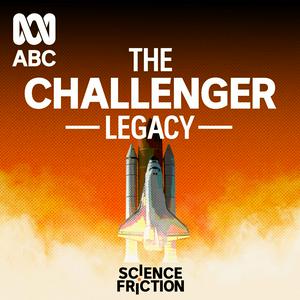
Get the free radio.net app
- Stations and podcasts to bookmark
- Stream via Wi-Fi or Bluetooth
- Supports Carplay & Android Auto
- Many other app features
Get the free radio.net app
- Stations and podcasts to bookmark
- Stream via Wi-Fi or Bluetooth
- Supports Carplay & Android Auto
- Many other app features


Science Friction
Scan code,
download the app,
start listening.
download the app,
start listening.




